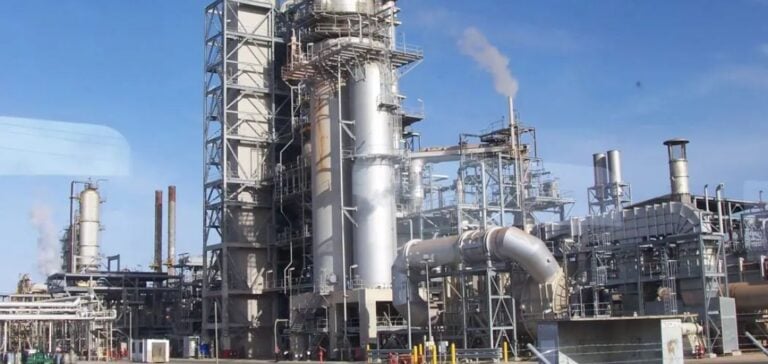The Warri refinery, located in Nigeria’s Delta State, has officially resumed operations after eight years of inactivity. This restart is part of the federal government’s initiative to rehabilitate the country’s petroleum infrastructure. The refinery’s return to service was confirmed on Sunday, January 5, when petroleum marketers began sourcing fuel, including diesel and kerosene.
The rehabilitation project, conducted alongside the Kaduna and Port Harcourt refineries, represents a milestone for local oil production. The Warri refinery, with a nominal refining capacity of 125,000 barrels of crude oil per day, is currently operating at 60% capacity, according to Bayo Ananuga, special advisor to the president on information and strategy. Only one of the three refining units has been reactivated so far.
A National Objective: Reducing Dependence on Imports
The rehabilitation of refineries is a cornerstone of Nigeria’s energy strategy, as the country heavily depends on imports to meet local demand for petroleum products. By restarting the Warri refinery and the recently operational Port Harcourt refinery, the government aims to reduce this dependency while addressing the growing demand for fuel.
Beyond local supply, this strategy also seeks to lower costs associated with importing and transporting refined products. National refining capacity is expected to increase further with the upcoming commissioning of the Kaduna refinery, whose rehabilitation is slated for completion soon.
Management Challenges and Privatization Prospects
However, the restart of refineries does not guarantee efficient and transparent management of these facilities. Challenges related to continuous fuel supply remain a major concern. According to the Petroleum Products Retail Outlets Owners Association of Nigeria (PETROAN), privatizing the refineries could offer a sustainable solution by ensuring more efficient management.
This proposal reflects persistent concerns about the state’s capacity to effectively manage refineries amid rising demand and fuel price volatility. The success of these initiatives will largely depend on the implementation of strong and transparent management mechanisms.
With the gradual restart of its facilities, Nigeria aspires to become a key player in the local transformation of its oil resources while strengthening the country’s energy security.






















